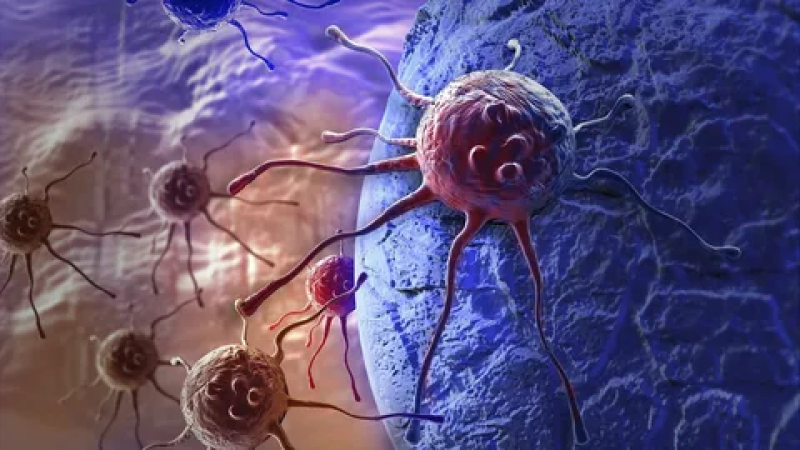Adrenocortical carcinoma (ACC) is a rare and aggressive malignancy originating in the adrenal cortex, known for its complexity and challenging diagnosis. This cancer often presents with symptoms related to hormone overproduction or mass effect, driving the necessity for a multidisciplinary approach to treatment.
Surgical Intervention Remains the Cornerstone for Adrenocortical Carcinoma
Surgical resection is widely regarded as the primary and most effective treatment modality for early-stage adrenocortical carcinoma. Complete removal of the tumor via adrenalectomy offers the best chance for long-term survival and potential cure. However, due to the aggressive nature of ACC, tumors are frequently large at diagnosis and may invade adjacent structures, complicating surgical approaches.
Adrenocortical Carcinoma Treatment is typically favored over laparoscopic techniques in cases where malignancy is suspected, as it allows for en bloc resection of the tumor along with surrounding tissues or lymph nodes. Achieving negative surgical margins—meaning no residual tumor at the surgical edges—is critical in reducing recurrence risk. Despite complete resection, there is a high rate of local and distant relapse, underscoring the importance of combined modality treatments.
Adjuvant Therapy Strategies to Reduce Recurrence and Improve Survival Rates
Following surgery, adjuvant therapies play a pivotal role in mitigating the likelihood of tumor recurrence. Mitotane, an adrenolytic drug specifically targeting adrenal cortex cells, remains the mainstay adjuvant treatment in patients at high risk of relapse. This medication helps suppress residual cancer cells by impairing steroidogenesis and directly cytotoxic mechanisms. Prolonged mitotane therapy requires careful monitoring due to potential side effects, such as gastrointestinal disturbances and adrenal insufficiency, making it essential to tailor treatment to individual tolerance.
Radiation therapy has also found use in select cases of ACC, primarily as an adjunct to surgery for local control. Although its role is less established compared to mitotane, radiation may reduce local recurrence, particularly when surgical margins are positive or inoperable residual disease is present. Advances in precision radiotherapy techniques have increased the feasibility of targeting tumors while sparing surrounding organs.
Systemic Chemotherapy and Emerging Targeted Treatments for Advanced ACC
In patients with unresectable, metastatic, or recurrent ACC, systemic therapies become the focus. Traditional chemotherapy regimens typically include combinations of agents such as etoposide, doxorubicin, and cisplatin, often administered alongside mitotane. While response rates vary and are generally modest, chemotherapy can provide symptom palliation and disease control in advanced stages.
In recent years, research into the molecular and genetic underpinnings of ACC has paved the way for novel targeted therapies and immunotherapies, offering renewed hope for patients with limited options. Several clinical trials are examining agents that inhibit pathways involved in tumor growth, including IGF-1 receptor antagonists and immune checkpoint inhibitors. Although these treatments are still investigational, they represent a growing area of interest in adrenocortical carcinoma management.
Navigating the Latest Market Research Insights on Adrenocortical Carcinoma Therapeutics
For healthcare professionals, pharmaceutical companies, and investors, staying informed on the evolving landscape of adrenocortical carcinoma treatments is vital. Comprehensive insights into drug development pipelines, ongoing clinical trials, and emerging therapeutic modalities assist in identifying opportunities and challenges within this niche oncology segment. Detailed market research analyses provide critical data on treatment adoption trends, regulatory approvals, and competitive dynamics that shape the future of ACC management.
These market reports typically offer in-depth evaluations of current therapies from a commercial perspective, assessing factors such as market penetration, pricing strategies, and forecasted growth rates. Such information supports strategic decision-making for stakeholders involved in oncology drug development and healthcare delivery, facilitating more informed investments and collaborations.
Patient-Centered Care and the Importance of Multidisciplinary Clinics
Treatment for adrenocortical carcinoma requires coordinated care from a team of specialists including endocrinologists, oncologists, surgeons, radiologists, and pathologists. Multidisciplinary tumor boards that review each case help tailor interventions based on tumor stage, hormonal activity, and patient health status.
Incorporating supportive care measures is equally important, as patients often experience symptoms related to hormone excess as well as treatment toxicity. Adrenal insufficiency management during and after mitotane therapy, nutritional support, and psychological counseling contribute significantly to overall patient well-being.
The Commercial Landscape and Accessibility of Adrenocortical Carcinoma Treatments
From a commercial perspective, the rarity of ACC presents challenges in drug development investment and market accessibility. Pharmaceutical companies must balance the high cost of targeted and orphan drugs against the small patient population. Pricing models and reimbursement policies impact the availability of newer therapies, influencing treatment protocols worldwide.
Pharmacies, specialty drug distributors, and healthcare providers align to ensure that patients receive timely access to prescribed medications, with an emphasis on global collaboration to address disparities in treatment availability. Market dynamics continue to evolve as novel therapies gain regulatory approvals, expanding options for ACC management.
Get This Report in Japanese Language: 副腎皮質がん治療
Get This Report in Korean Language: 부신피질 암 치료
Read More Articles Related to this Industry- Cannabis Testing Market- Global Industry Insights
About Author:
Ravina Pandya, Content Writer, has a strong foothold in the market research industry. She specializes in writing well-researched articles from different industries, including food and beverages, information and technology, healthcare, chemical and materials, etc. (https://www.linkedin.com/in/ravina-pandya-1a3984191)
